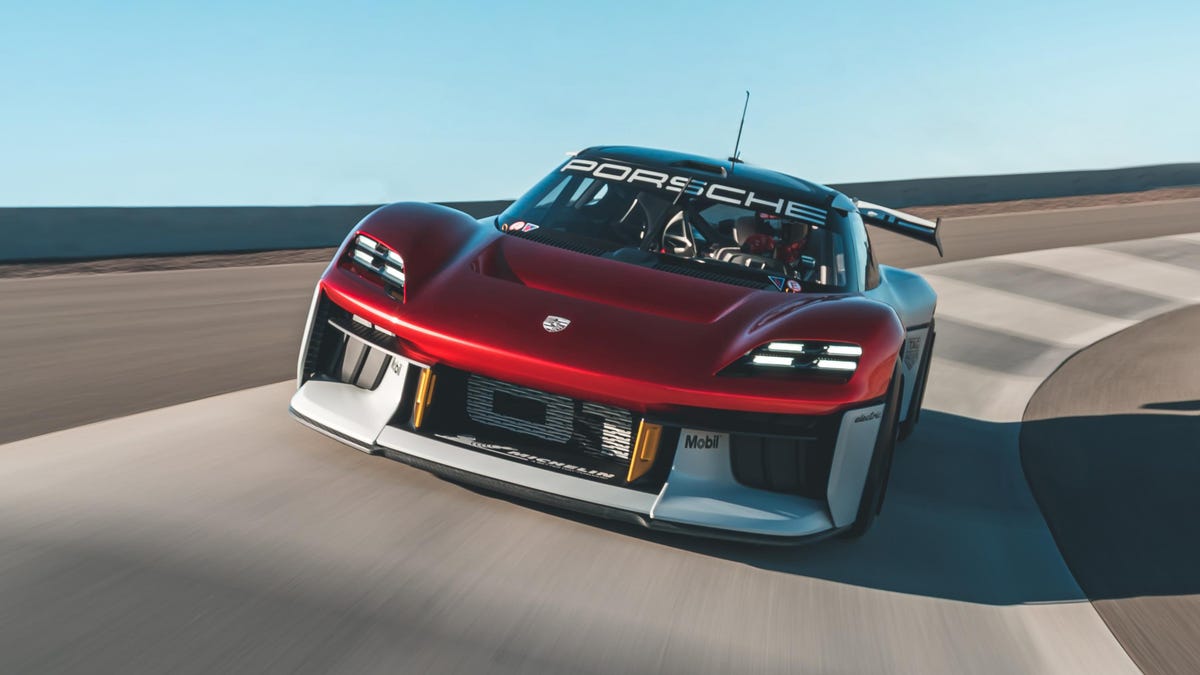Porsche Confirms Next-Gen 718 Will Be All-Electric
It'll be Porsche's third all-electric model, following the current Taycan and the upcoming new Macan.
When we drove the Porsche Mission R electric race car prototype late last year, it felt pretty obvious that the car was a motorsport-themed preview of what to expect when the automaker electrifies its smallest sports cars, the 718 Boxster and 718 Cayman, even though Porsche wasn't admitting to anything at the time. Well, if you liked that concept, you're going to love Porsche's latest announcement.
Porsche at its annual conference on Friday confirmed that the next-generation 718 will use nothing but battery-electric powertrains. This will make the 718 the third Porsche vehicle to shift to pure electricity, following the Taycan, which has been out for a couple years now, and the next-gen Macan, which we should see soon. CEO Oliver Blume said the electric 718 would arrive in 2025.
This coincides with another announcement from the annual conference: "In 2030, the share of all new vehicles with an all-electric drive should be more than 80%," Blume said. Previously, Porsche had said it wanted most of its vehicles to be either electric or a plug-in hybrid by that point. This signals a more aggressive push into the battery-electric space, where previously Porsche had leaned heavier on plug-in hybrids as a sort of steppingstone. Between now and then, Porsche hopes that 50% of its annual sales by 2025 will comprise BEV and PHEV variants.
Setting more ambitious targets means more legwork is required to reach those goals. To that end, Porsche says it plans to invest into more charging stations with partners, in addition to its own charging infrastructure. The automaker is also investing in high-performance battery cell manufacturing as part of its Cellforce Group joint venture, and Porsche believes they will be greenlit for series production by 2024. This should bring improvements to how the batteries charge and discharge, as well as improving energy density, which can reduce the battery pack's mass and thus boost the car's performance further.
You can't sell electric cars if there's nowhere to charge them, though, but Porsche has plans for infrastructure, too. The automaker said that it will continue working with partners to flesh out public charging stations, but Porsche also confirmed it would work on Porsche-only charging stations for its owners. Likely similar to the Audi Charging Hub concept (they're all one big, happy VW Group family, after all), these stations will give Porsche owners a place to charge and relax or work with a cup of coffee and a nice place to sit.
Even with all this forward-looking business keeping Porsche plenty busy, it's not like it's having a bad time in the present. The automaker had a record-setting year in 2021, delivering 301,915 vehicles worldwide, the first time the OEM has broken the 300,000-car mark. The Macan was the clear sales champ, with the Cayenne not too far behind. In addition, Porsche doubled its Taycan deliveries in 2021, while the 911 also had its best year to date, nipping at its electric sibling's heels with 38,464 deliveries against the Taycan's 41,296. And if the electric 718 is anything like the Taycan, it will be quite the car.


